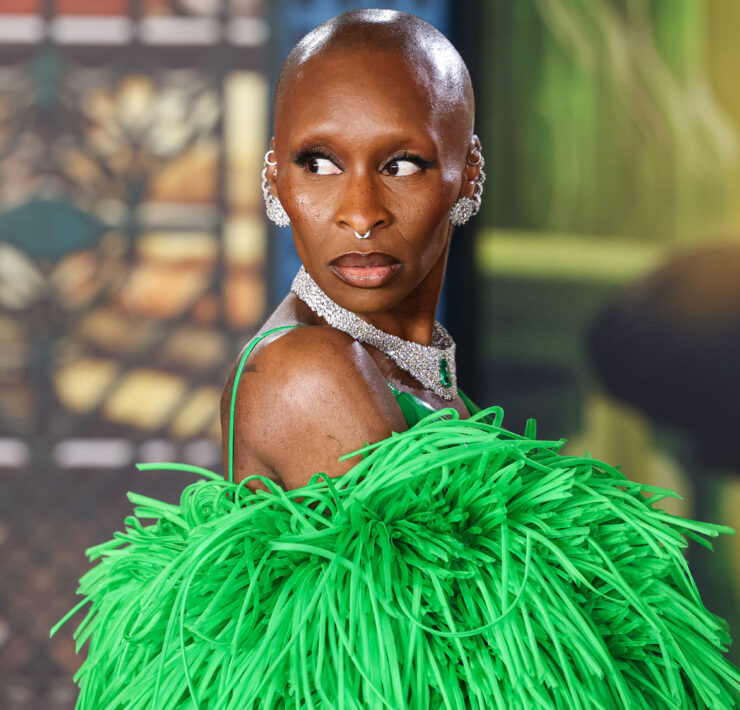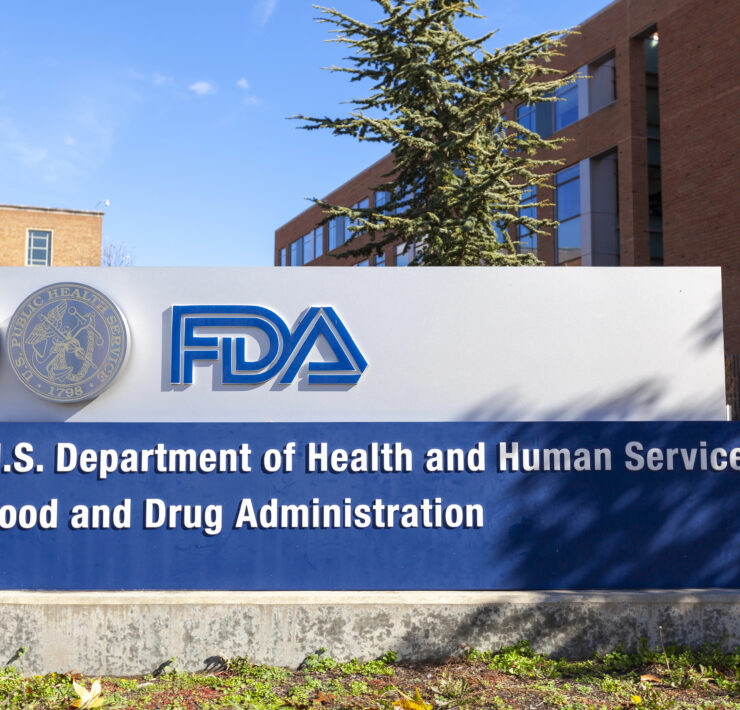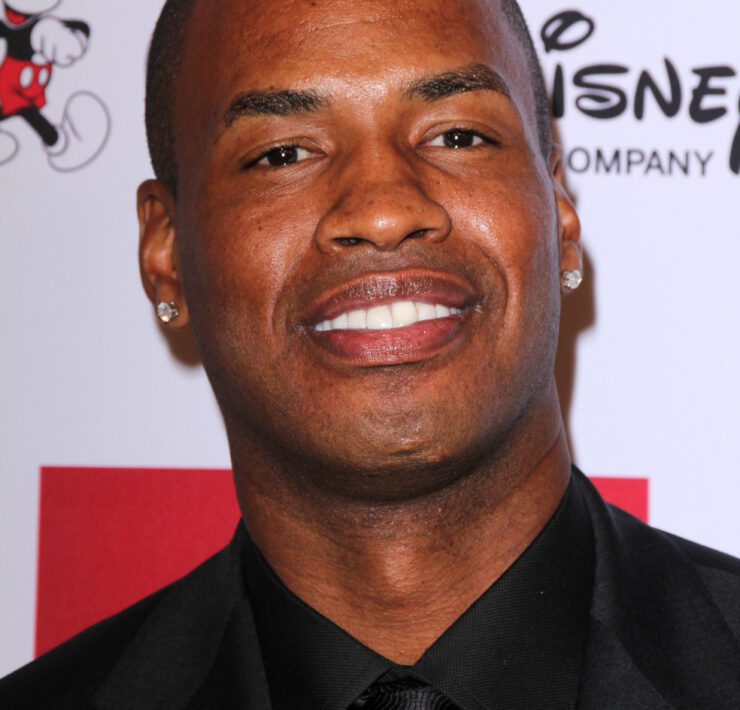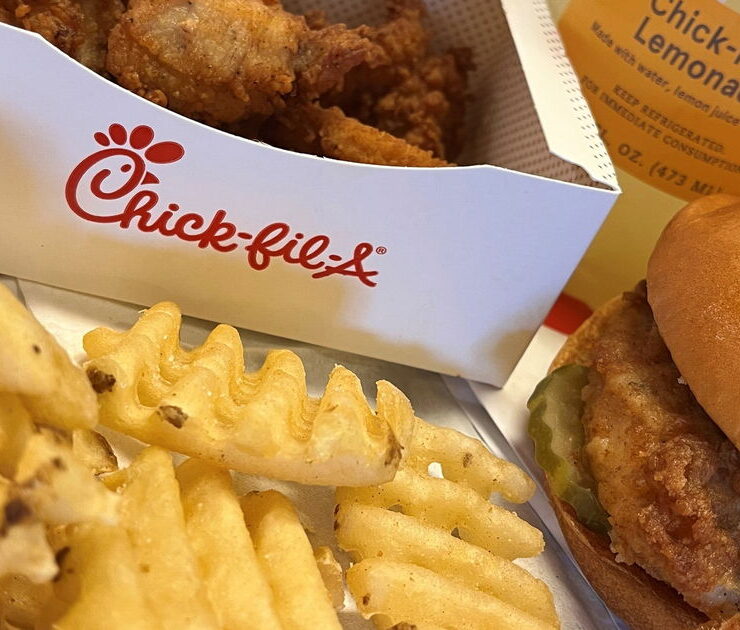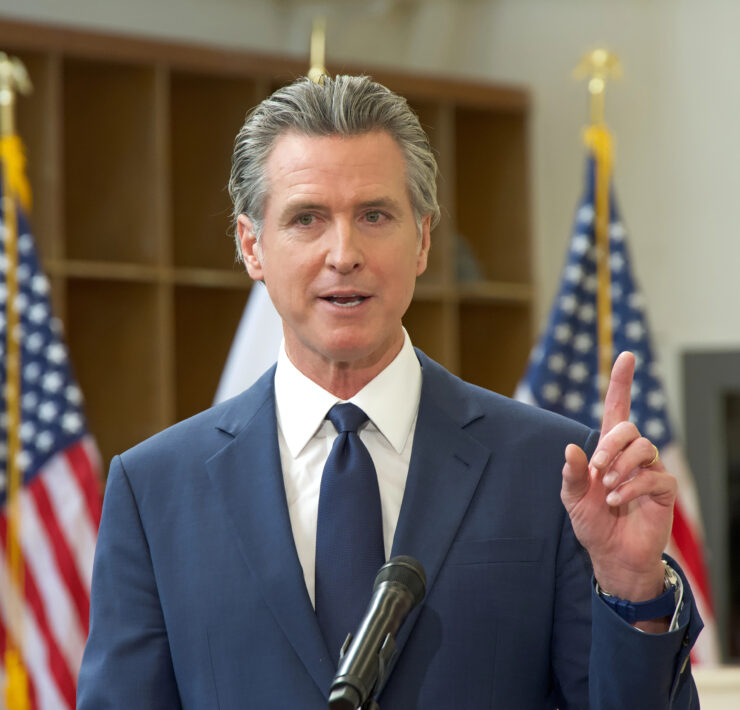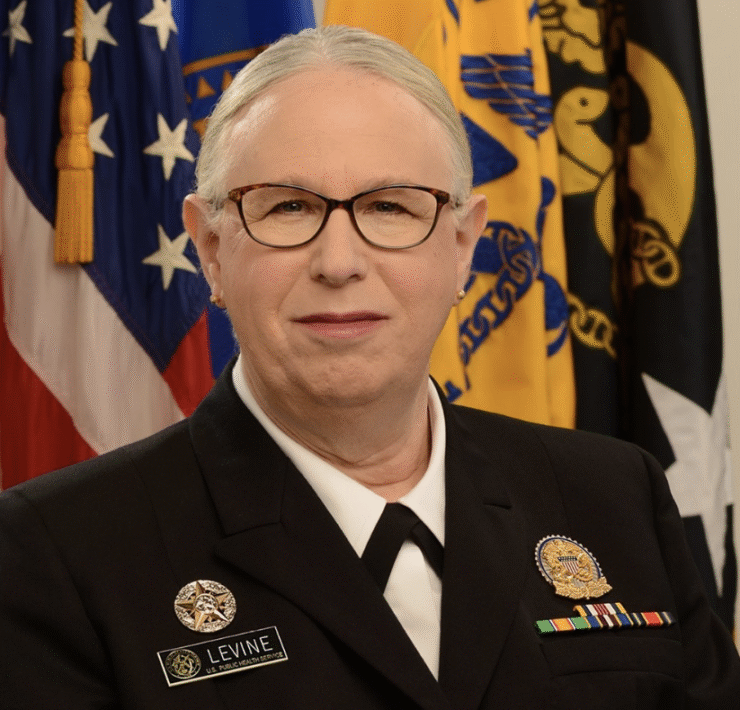Theo Germaine on ‘Equal’ and Nonbinary Representation

Denny Patterson is a St. Louis-based entertainment and lifestyle journalist…
Theo Germaine is living proof as to what is possible for nonbinary entertainers in Hollywood.
Following decades of being almost nonexistent, trans and nonbinary representation has dramatically increased over the last few years, and Germaine has been part of the push. They started their Hollywood career appearing in Ryan Murphy’s The Politician as James Sullivan, Payton’s (Ben Platt) campaign manager and advisor. From there, they have been seen in Showtime’s Work in Progress, and most recently in HBO Max’s LGBTQ historical docu-series Equal playing Jack Starr.
Not much is known about Starr, but it is believed that he was a trans man living as an outcast in Montana at the turn of the century, often being arrested for wearing clothes that did not conform to his gender assigned at birth. Germaine hopes that Equal will inspire people to learn more about queer history.
Germaine took some time to chat with OUT FRONT and talk more about what it meant to play Starr, why they think nonbinary representation is still rare in Hollywood, and what we can expect next from The Politician.
Hi, Theo! Thank you for taking some time to chat with me. How are you doing during these unprecedented times?
Honestly, it has been hard. There has been a lot of stress. I lost a relative, not to COVID, but my uncle who I was pretty close with when I was little passed away from heart failure. It has been pretty hard on my family, so a lot of shit has been hitting the fan. Creatively, I have gotten used to working on other people’s projects, and there is a lot that I do not know about freelancing, so I have been trying to learn. I want to be good at making my own things and be a better marketer, businessperson, and writer.
Also, a lot of sets are not open right now. I was supposed to work on something, but because of COVID, the filming schedule obviously got canceled. Everybody is kind of dealing with that to some sort. On the other hand, some good things that have happened, I have made some amazing new friends during this time, and I adopted a kitten. So, a lot of bad and stress, but some good. A lot of people are struggling with mental health issues, and I think this time has revealed how much of a deficit we have in regards to how to access resources and take care of ourselves. These are difficult times, and all we can do is take it day by day. At least you are managing okay. Now, you appear in HBO’s new docu-series Equal as Jack Starr, which premiered in October for LGBTQ History Month. What did playing Jack and being involved with this show personally mean to you?
These are difficult times, and all we can do is take it day by day. At least you are managing okay. Now, you appear in HBO’s new docu-series Equal as Jack Starr, which premiered in October for LGBTQ History Month. What did playing Jack and being involved with this show personally mean to you?
Oh, gosh. Jack Starr is a person who I want to say is a historical figure because I have now learned about him, and I think he is really cool. There is actually not a lot of information on him. A lot of the scholarly people who worked on this docu-series, they have done so much research, and they kind of revealed who all these people are.
They showed the evidence of them only through things like newspapers because of a report of someone getting arrested multiple times, or something like that. You feel connected with these people even though you don’t know them. You did not know who they were, and you never met them. You feel that connection because of what they struggled with, and you feel the lineage even though it is not biological.
I feel super connected to him. He was like this cool, rip-roaring criminal who lived in the west, and all he wanted to do was wear a suit and be with his lady. He was in jail, and they were like, we will let you out of jail if you wear a dress, and he was like, no. I think he stayed in jail a lot because of that, and he also, for a time, stayed in a hotel for a month avoiding arrest.
He would not leave the room because if he did, people would see him, and they would be like, we are going to arrest this cross-dressing person. He just kind of navigated wearing a suit as best as he could. I wonder what he was like personally. I would have loved to have met him; I am very curious about him. It feels exciting because nobody knows who he is, and it feels cool to bring a person into light who has no prior coverage.
Even you did not know much about him before accepting the role?
No, I didn’t. I heard that they kind of had to fight to put his story in because people were like, we don’t know who he is; why is it important? Other people were like, that is why it’s important. We need these random pieces of evidence of our past, no matter what, because that is all we have. He was a figure that was so hard to find information on when I tried to research him on the internet. Nothing exists. Nothing, I could not find anything on him.
Actually, what I did find was a different person named Jack Starr who probably would have been a trans-feminine person if they were alive today. So, I initially did not want to audition for the character because I thought it might have been a mistake. I auditioned for Craig Rodwell, who is played by Scott Turner Schofield, and we learned that Scott auditioned for my character.
Now that we are learning more about Jack, what kind of legacy do you think he left?
I don’t know. He just kind of disappeared. He was that kind of person, and there are hundreds and thousands of people who are like that over the course of our history. I guess that just makes me think about how we love tokenizing and how we love to lift a particular thing up that we have deemed palatable.
I think it is important that we have evidence of people existing. Not like the first person who was on TV who talked about gender identity or something like that, but we need evidence of normal people just trying to live their lives as queer people.
If you had a chance to meet Jack, what would you say?
I would ask if he wanted to get a drink [laughs]. I would probably ask if he just wanted to hang out, and I would tell him that we are similar. I think it would be really cool to meet him. He was a great piano player, so maybe I would ask him to play the piano for me.
Related Article: Elizabeth Faith Ludlow as Stormé DeLarverie in ‘Equal’
What do you hope viewers take away from Equal?
I hope they really like it. I hope that they learn about a new historical figure that they have not learned about before, and I think there is something about this show that is really celebratory. There is something about it that is kind of fierce, and it feels threatening in a good way. This is a documentary that is in the mainstream category because it is in a specific streaming network, like a major streaming network.
I just want these more aggressive queer pieces of media to be showing up regularly because we are going to make this be normalized. We are going to make you stop treating us in a way that makes us feel bad. We are going to make you stop thinking that there is something wrong with somebody’s sexuality. I want it to be a push, and I want audiences who are not queer to watch it too. I hope that they will. I want my family to watch it.
As a nonbinary person, do you prefer to play roles that are not gender-specific, or are you comfortable playing both masculine and feminine roles?
I haven’t played any characters who are women in a very long time. I think the last time I did it was five years ago when I used to do a lot of stage acting. The first job that I booked was this weird gender-blind, color-blind show at the Goodman Theatre in Chicago, and for some reason, I played a female character.
I don’t know why. They were casting trans people for a role, or they were looking for different people, and they cast trans man, nonbinary person as a cisgender character. I don’t know why, but it was interesting. I would do it again under the right circumstance, but mostly I play male characters or like the fairies in Shakespeare.
I like to do a lot of physical sort of things. Lots of animals, fairies, and characters that are specifically trans, and also men. I kind of just want access to everything, and I am going to figure out how to get it. That is what I keep telling myself, because there is a lot of pigeonholing and boxing in that is happening right now in regards to any auditions that are coming through. Most of the characters that I still get called in for are trans, and I am getting really tired of that. LGBTQ people should get to play straight people, honestly.
Why do you think nonbinary people or characters are not represented enough in film and media?
Hollywood has this idea that nonbinary people are, like, white, thin, and they look a very specific way. I think there is this weird, centralist thing going on with that. I just want the diversity of nonbinary representation to just explode. There are certain challenges that I have faced because of who I am in the industry, but because I am white, there are a lot of privileges that I still have.
Hollywood still thinks that nonbinary people must have specific genitalia. Every, single audition that I have gotten for a nonbinary character, there is usually some coded language in there, and I think that is really fucked up. I really want that to change. You cannot be nonbinary and then be like, it looks like this. The word means so many things. If there was actual diversity among nonbinary representation in Hollywood, I think that would be great because there is not enough right now, at all.
Have you always had a passion for acting?
Yes, always. When I was little, I wanted to be a fashion designer; then I wanted to be a visual artist, and then I wanted to be an author. I also wanted to be a vet and an astronaut for a little while, but acting has always been a thing. I used to write shows and put them on for my friends and family, which is a very common origin story. I have talksed to a lot of other actors who are like, yup, I did that. I always liked storytelling and trying to maintain as much of an imagination as I can. Your first major role was playing James Sullivan in Netflix’s The Politician. What do you enjoy the most about working on that show?
Your first major role was playing James Sullivan in Netflix’s The Politician. What do you enjoy the most about working on that show?
I learned so much, and even about my own personal issues. I can be a very anxious person, and working on a major set where there are so many people, I think I kind of sublimated my own authority because I was so nervous. It has kind of helped me start to work through that, but also, I learned so much more about acting for TV.
It was really fun. It was nice getting to wear costumes where everything was tailored correctly, and it was amazing getting to work with everybody and getting to learn about their craft. I made a lot of new connections, and I learned that I really want to get into directing because of working on the show. It has been a positive experience.
Would you ever want to be a campaign manager or advisor in real life?
It would depend on the situation. I can be a pretty good cheerleader, but being a campaign manager sounds pretty intense.
Are there any details you can share about the upcoming third season?
I can say that everyone is almost positive that it is going to happen because Ryan Murphy has already been talking about it. Unless something changes. He has also talked about everybody needing to be older because between each season, there is a time jump, and there is going to be another time jump in season three.
If you have watched seasons one and two, you have an idea of where it is going to go. I imagine it is going to involve a presidential election, and it is going to involve all of us being a few years older, or maybe being aged up a bit. That is literally all I know. I have no idea when it will happen.
Before we wrap up, is there anything else you would like to mention or any upcoming projects you would like to plug?
That is basically it for now. I am just trying to write, and hopefully something will happen with that!
To stay up-to-date with Germaine, follow them on Twitter and Instagram.
Photos Courtesy of Instagram
What's Your Reaction?
Denny Patterson is a St. Louis-based entertainment and lifestyle journalist who serves as OFM's Celebrity Correspondent. Outside of writing, some of his interests include traveling, binge watching TV shows and movies, reading (books and people!), and spending time with his husband and pets. Denny is also the Senior Lifestyle Writer for South Florida's OutClique Magazine and a contributing writer for Instinct Magazine. Connect with him on Instagram: @dennyp777.



